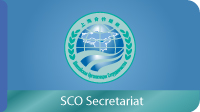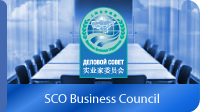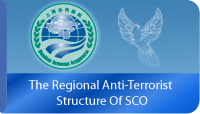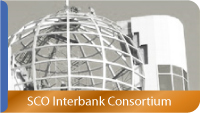|
|
 |
| Driving by SCO Highway |
| 26.03.2015 17:48 |
Vladimir Zakharov, senior lecturer of the National Research University "Higher School of Economics", |
|
|
|
The summit of the Shanghai Cooperation Organization supposed to be held in summer 2015 must be important, maybe even life-changing for the political and economic history of this organization. The adoption of the SCO Development Strategy until 2025 is tied up with its carrying. The vast experience allows to make adjustments not only in this organization workstyle and tactical line, but to bring mid-term interests of all the member states to a common standard by means of a single document that will determine the SCO development and prepare the outside world for it. But it appears that it'll be hard to do it.
Between tactics and strategy
There are opinions that the preliminary analytical effort on this subject should be realized outside departments. In particular, it should become the point of issue within the SCO Forum and its close cooperation with the front office and the executive committee of the Regional Antiterrorist Structure (RATS).
But at first it's necessary to determine a proportionality of the current SCO process with the tasks and objectives that were stated in such organizational documents as the Charter of 2002, the Agreement for Long-term Neighbourliness, friendship and cooperation of 2007, and Major lines of the strategy for 2012. Real achievements and errors of judgement of the Founding Fathers should be outlined with the maximum degree of seriousness and honesty. The optimistic image of the SCO as a "large regional association influencing the regional situation and the world as a whole", that became a mark for many official publications, requires a critical re-evaluation. Does it correspond with reality? What did the SCO contribute to the solution of regional and global tasks? Do our assessments meet with opinions of the expert and world community? And if it's so, then in what points? Do our partners in Eurasia make allowances for the political and economic clout of this organization? Do they consider the SCO factor or do they just use this brand to solve their own problems?
It's necessary to define problems for the SCO further institutional building that got over its forum type without being an efficiently working organization for multi-industry cooperation. It appears that the parties cherish their sovereign powers and multidirectional interests to the prejudice of political and economic cooperation. And how is it possible to move further without any consensus on such actual problems? Does the SCO need, like ASEAN and the Eurasian Economic Union did, to develop a milestone development schedule that will form the strategy basis?
It's clear that today none of the member states isn't ready to propose an idea to create a union on the basis of the SCO. But then it's necessary to define what type of organization it will be in ten years, i.e. an association or a union, and to give exact criteria for each of these terms. But is it necessary to balance political and economic components? It's obvious that a detailed evolution forecast in regard to the safety of political and economic conjuncture will be needed.
It's important to think of to what extent the tactics were developed according to the SCO tasks and objectives determined by its Charter. Then there was a decision that only a multi-industry type of such an organization could provide a "supporting and strengthening of the world, a regional safety and stability"; and it could make for the creation of a new democratic, fair and rational politic and international setup. It seems to be that earlier such a multitrack movement of the SCO wasn't balanced.
The simplified model for the SCO enlargement proposed in the Charter got many conventions that prevented to realize a principle of the organization openness. It's obvious that if today-tomorrow Mongolia and Turkmenistan lodged applications to enter into the SCO, the political decision would be quickly performed in a lawful manner. But now it doesn't take place because the indicated states want to use their current observer and "non-member" status at best value, on the basis of their multiple-vector positioning in the international arena. The other Asian partners seeking the full membership in the organization are India, Pakistan and Iran, but they can't do it. The first two states have a bilateral conflict potential and plummet of unsettled territorial problems between the People's Republic of China and India; Tehran still has sanctions imposed by the United Nations. It's obvious that the protecting relation of some member states to the observers (on the part of Russia - to India, on the part of Tajikistan - to Iran, on the part of China - to Pakistan) doesn't assist in getting consensus within the SCO.
Bold and unconventional steps should be taken. But at first it's necessary to answer the following questions. Does the SCO have a need of enlargement? Under which terms? Is there a necessity of added incentives to speed up this process? And the main thing is: how should it be fixed in the future strategy?
The practice of involving states-observers and dialogue partners in political and economic cooperation could assist in the SCO enlargement. But it also doesn't take place. These countries have to be simple observers without any chances of getting a real economic and financial help from the SCO. At best they can get this help from some member states but not from the organization as a whole.
Safety and anti-terror
Due to a particular risk of terrorism, separatism and extremism great attention was paid to the cooperation of law-enforcement systems of the SCO member states. At short notice a mechanism coordinated in a legal and organizational manner and allowing to narrow possibilities for the international terrorism was created. Besides over the last few years people got a rewarding experience of the antiterrorist cooperation by means of training exercises with the participation of law-enforcement and military bodies. That's why while planning the future it's necessary to think of how to save all lessons learned. Especially taking into account poor results of the presence of troops from the international coalition in Afghanistan, the activation of terroristic forces in Iraq and Syria. There is one more actual problem, i.e. a problem on the SCO action against "colour" revolutions. This refers to the unity and solidarity of all the organization before these dangers. It's necessary to make allowance for the "pleochromatism" of positions on the part of the member states in regard to the Afghan settlement.
As far as the SCO security agency comprises activities of different ministries and departments of the member states, in time there is a need to strengthen its coordination and cooperation. Including the need to create a permanent body against terrorism, arms traffic and drug offence and organized crime, as well as a body on information security. The consideration of all the variety of indicated problems should be included in the SCO developed document.
Economic cooperation
The economic cooperation developed today by means of bilateral ties is a different story. It's confirmed by the lack of important multipartner projects and legal, financial and organizational infrastructure necessary for it. Annual meetings of chiefs from relevant departments and many working parties haven't resulted in the creation of strategic structures - bank for development and specified accounts - necessary for the materialization of project activities. Despite of significant, but unfortunately separate efforts made by ministries, the Business Council and the SCO Interbank Association, the member countries failed to create legal conditions eligible for business and to stir it into the participation in projects offered in different programs, plans and check lists. All the announced projects are still on paper. There is a good courtesy to report on the economic cooperation during important SCO events with reference to examples of the bilateral cooperation.
Attempts of China to call partners to create a foreign trade zone, a development bank within the Shanghai Cooperation Organization and to realize the idea of the Silk Great Way economic zone within and out of the Shanghai Cooperation Organization (that was mentioned for the first time in September 2013 during the visit of Xi Jinping, the Chairman of the People's Republic of China, in countries of the Central Asia) have been unsuccessful. There were some working offers, for example, to create the Asian bank for infrastructure development in respect to the Chinese-Kazakh energy cooperation. Thus they represent attempts of Beijing to get round legalistic obstructions taken place inside the organization and to develop the bilateral trade and economic cooperation with countries from the Central Asia. It has already made Celestial Kingdom the first trade partner in the region and pushed Russia into the background.
A bureaucratic fuss and a mismatch of plans of state offices and business (the latter doesn't like the SCO pie with project stuffing) have broken efforts of the parties to sign some important agreements. It's necessary to recall the fate of the long-suffering Agreement on the creation of favourable conditions for international road transport which preparation took seven years. Everything was ready for its signing but the chance was missed because of legal objections of one of the parties. The creators of a new strategy should resolve the most important problem, i.e. whether the organization will follow suit of integration or not. As the time when all the SCO countries become members of the World Trade Organization is at hand. And it should be taken into consideration by projectors of the SCO strategy. Its Charter has a disposition on "the coordination of approaches during integration into the international economics". But how can they be coordinated at the lack of approaches for integration inside the organization?
The other direction indicated in the Charter represents the "provision of a rational use of natural resources, including utilization of water resources", but the SCO didn't put it on the agenda of negotiations and forums. There may have been some disputes between countries from the Central Asia and the lack of will on the part of other states. But in the next ten years the population in the Central Asia will increase for 10 mln people, problems of the Aral Sea will be worse and the situation on a provision with drinking water will become sharp.
May some Kirghiz and Tajik experts be right when they offer to consider water as a good, in terms of oil and natural gas, in the light of the region`s specific features? May it be necessary to try to reach a consensus during one of the SCO summits on such important issues as use of natural resources and energy, before proceeding to the strategy development? The penetration of the indicated issues on the back of unsettled territorial and border conflicts will complicate relationships between the SCO countries and push some of them to seek help of other units. Thus, in our opinion, the initiative of a complex solution of these problems should come from countries of the Central Asia and find a proper understanding and support on the part of Russia and China.
Governance matters
I'd like to tell about a very important thing. Every year during the SCO summits heads of states launch initiatives that could serve as a base for the future strategic framework. Why do these offers seldom reach their final realization? Is the consensus principle to be blamed for it? Because even a dissent of one of the states puts an end to the project. May it be necessary to think on the development of a new disposition in regard to the elective application of this principle to political, economic and humanitarian projects different by their importance?
It's impossible to avoid the reconsideration of the SCO functions and tasks aiming to increase the mechanism of its efficiency. Almost every year at different levels there is a question to grant a new status to the front office and to increase the status of the SCO Secretary-General. But things aren't moving. The formal change of the SCO head position title from the Executive Secretary to the Secretary-General didn't add him any powers. Just the position title in Russian and English was changed. By the way, in Chinese it sounds the same, i.e. "mishuzhang".
It is a good idea to reconsider issues of cooperation between permanent bodies (PB) of the Shanghai Cooperation Organization that work in a rather standalone mode in legal, executive and organizational relations. Thus they obey foreign policy and security agencies of the member states, and decisions made by the Councils of the member states are closed at the highest level. Sometimes it appears that the Shanghai Cooperation Organization relies on two permanent bodies acting absolutely on their own accounts and having their own ambitions. Should this style be changed? Is it possible to speak of political and security agencies, as with NATO? Is it necessary to give the Secretary-General more powers or to agree upon the character of mutual relations and order of interfacing between the Secretary-General and the Head of the Executive Committee of the SCO Regional Antiterrorist Structure? It appears that it's worth pondering over the subject of relationships between two hierarchy lines and their cooperation to achieve strategic interests.
Actually there is a question of the coexistence of two separate vertical structures, i.e. the political, economic and humanitarian agency curated by the Secretariat of the Shanghai Cooperation Organization in Beijing under control of the Council of national coordinators and the law enforcement agency curated by the Executive Committee of the Regional Antiterrorist Structure in Tashkent under control of the Council of the Regional Antiterrorist Structure.
The variant to give permanent representatives to the SCO Secretariat and the RAST Executive Committee efficient roles could be considered as a working hypothesis, but thus the status of the institute of national coordinators would be increased till the level of Deputy Ministers of Foreign Affairs curating these issues. Earlier such things took place; almost all national coordinators, except the Russian one, were represented in this guise. Thus their schedule of meetings could have been reduced to two-three times a year by means of firming tasks and responsibility of the permanent representatives to the Permanent Body.
This cluster of the developed strategy should provide issues on cooperation in the international field. It's good when in the United Nations, the Organization for Security and Cooperation in Europe and other international and regional organizations representatives of the SCO member states speak the same language and realize a close coordination.
|
|
* Реестр иностранных средств массовой информации, выполняющих функции иностранного агента:
Голос Америки, Idel.Реалии, Кавказ.Реалии, Крым.Реалии, Телеканал Настоящее Время, Azatliq Radiosi, PCE/PC, Сибирь.Реалии, Фактограф, Север.Реалии, Радио Свобода, MEDIUM-ORIENT, Пономарев Лев Александрович, Савицкая Людмила Алексеевна, Маркелов Сергей Евгеньевич, Камалягин Денис Николаевич, Апахончич Дарья Александровна, Medusa Project, Первое антикоррупционное СМИ, VTimes.io, Баданин Роман Сергеевич, Гликин Максим Александрович, Маняхин Петр Борисович, Ярош Юлия Петровна, Чуракова Ольга Владимировна, Железнова Мария Михайловна, Лукьянова Юлия Сергеевна, Маетная Елизавета Витальевна, The Insider SIA, Рубин Михаил Аркадьевич, Гройсман Софья Романовна, Рождественский Илья Дмитриевич, Апухтина Юлия Владимировна, Постернак Алексей Евгеньевич, Общество с ограниченной ответственностью Телеканал Дождь, Петров Степан Юрьевич, Istories fonds, Шмагун Олеся Валентиновна, Мароховская Алеся Алексеевна, Долинина Ирина Николаевна, Шлейнов Роман Юрьевич, Анин Роман Александрович, Великовский Дмитрий Александрович, Альтаир 2021, Ромашки монолит, Главный редактор 2021, Вега 2021
* Сведения реестра НКО, выполняющих функции иностранного агента:
Фонд защиты прав граждан Штаб, Институт права и публичной политики, Лаборатория социальных наук, Фонд по борьбе с коррупцией, Альянс врачей, НАСИЛИЮ.НЕТ, Мы против СПИДа, Фонд защиты прав граждан, СВЕЧА, Гуманитарное действие, Открытый Петербург, Феникс ПЛЮС, Лига Избирателей, Правовая инициатива, Гражданская инициатива против экологической преступности, Фонд борьбы с коррупцией, Гражданский Союз, Российский Красный Крест, Центр Хасдей Ерушалаим, Центр поддержки и содействия развитию средств массовой информации, Горячая Линия, В защиту прав заключенных, Институт глобализации и социальных движений, Центр социально-информационных инициатив Действие, ВМЕСТЕ, Благотворительный фонд охраны здоровья и защиты прав граждан, Благотворительный фонд помощи осужденным и их семьям, Фонд Тольятти, Новое время, Серебряная тайга, Так-Так-Так, центр Сова, центр Анна, Проект Апрель, Самарская губерния, Эра здоровья, правозащитное общество Мемориал, Аналитический Центр Юрия Левады, Издательство Парк Гагарина, Фонд имени Андрея Рылькова, Сфера, Центр защиты СИБАЛЬТ, Уральская правозащитная группа, Женщины Евразии, Рязанский Мемориал, Екатеринбургское общество МЕМОРИАЛ, Институт прав человека, Фонд защиты гласности, Российский исследовательский центр по правам человека, Дальневосточный центр развития гражданских инициатив и социального партнерства, Пермский региональный правозащитный центр, Гражданское действие, Центр независимых социологических исследований, Сутяжник, АКАДЕМИЯ ПО ПРАВАМ ЧЕЛОВЕКА, Частное учреждение Совета Министров северных стран, Центр развития некоммерческих организаций, Гражданское содействие, Центр Трансперенси Интернешнл-Р, Центр Защиты Прав Средств Массовой Информации, Институт развития прессы - Сибирь, Фонд поддержки свободы прессы, Гражданский контроль, Человек и Закон, Общественная комиссия по сохранению наследия академика Сахарова, Информационное агентство МЕМО. РУ, Институт региональной прессы, Институт Развития Свободы Информации, Экозащита!-Женсовет, Общественный вердикт, Евразийская антимонопольная ассоциация, Чанышева Лилия Айратовна, Сидорович Ольга Борисовна, Таранова Юлия Николаевна, Туровский Александр Алексеевич, Васильева Анастасия Евгеньевна, Ривина Анна Валерьевна, Бурдина Юлия Владимировна, Бойко Анатолий Николаевич, Гусева Ольга Андреевна, Дугин Сергей Георгиевич, Пивоваров Андрей Сергеевич, Писемский Евгений Александрович, Аверин Виталий Евгеньевич, Барахоев Магомед Бекханович, Шевченко Дмитрий Александрович, Жданов Иван Юрьевич, Рубанов Роман Викторович, Шарипков Олег Викторович, Мальсагов Муса Асланович, Мошель Ирина Ароновна, Шведов Григорий Сергеевич, Пономарев Лев Александрович, Каргалицкий Борис Юльевич, Созаев Валерий Валерьевич, Исакова Ирина Александровна, Исламов Тимур Рифгатович, Романова Ольга Евгеньевна, Щаров Сергей Алексадрович, Цирульников Борис Альбертович, Халидова Марина Владимировна, Людевиг Марина Зариевна, Федотова Галина Анатольевна, Паутов Юрий Анатольевич, Верховский Александр Маркович, Пислакова-Паркер Марина Петровна, Кочеткова Татьяна Владимировна, Чуркина Наталья Валерьевна, Акимова Татьяна Николаевна, Золотарева Екатерина Александровна, Рачинский Ян Збигневич, Жемкова Елена Борисовна, Гудков Лев Дмитриевич, Илларионова Юлия Юрьевна, Саранг Анна Васильевна, Захарова Светлана Сергеевна, Аверин Владимир Анатольевич, Щур Татьяна Михайловна, Щур Николай Алексеевич, Блинушов Андрей Юрьевич, Мосин Алексей Геннадьевич, Гефтер Валентин Михайлович, Симонов Алексей Кириллович, Флиге Ирина Анатольевна, Мельникова Валентина Дмитриевна, Вититинова Елена Владимировна, Баженова Светлана Куприяновна, Исаев Сергей Владимирович, Максимов Сергей Владимирович, Беляев Сергей Иванович, Голубева Елена Николаевна, Ганнушкина Светлана Алексеевна, Закс Елена Владимировна, Буртина Елена Юрьевна, Гендель Людмила Залмановна, Кокорина Екатерина Алексеевна, Шуманов Илья Вячеславович, Арапова Галина Юрьевна, Пастухова Анна Яковлевна, Прохоров Вадим Юрьевич, Шахова Елена Владимировна, Подузов Сергей Васильевич, Протасова Ирина Вячеславовна, Литинский Леонид Борисович, Лукашевский Сергей Маркович, Бахмин Вячеслав Иванович, Шабад Анатолий Ефимович, Сухих Дарья Николаевна, Орлов Олег Петрович, Добровольская Анна Дмитриевна, Королева Александра Евгеньевна, Смирнов Владимир Александрович, Вицин Сергей Ефимович, Золотухин Борис Андреевич, Левинсон Лев Семенович, Локшина Татьяна Иосифовна, Орлов Олег Петрович, Полякова Мара Федоровна, Резник Генри Маркович, Захаров Герман Константинович
* Единый федеральный список организаций, в том числе иностранных и международных организаций, признанных в соответствии с законодательством Российской Федерации террористическими:
Высший военный Маджлисуль Шура, Конгресс народов Ичкерии и Дагестана, Аль-Каида, Асбат аль-Ансар, Священная война, Исламская группа, Братья-мусульмане, Партия исламского освобождения, Лашкар-И-Тайба, Исламская группа, Движение Талибан, Исламская партия Туркестана, Общество социальных реформ, Общество возрождения исламского наследия, Дом двух святых, Джунд аш-Шам, Исламский джихад, Аль-Каида, Имарат Кавказ, АБТО, Правый сектор, Исламское государство, Джабха аль-Нусра ли-Ахль аш-Шам, Народное ополчение имени К. Минина и Д. Пожарского, Аджр от Аллаха Субхану уа Тагьаля SHAM, АУМ Синрике, Муджахеды джамаата Ат-Тавхида Валь-Джихад, Чистопольский Джамаат, Рохнамо ба суи давлати исломи, Террористическое сообщество Сеть, Катиба Таухид валь-Джихад, Хайят Тахрир аш-Шам, Ахлю Сунна Валь Джамаа
* Перечень общественных объединений и религиозных организаций в отношении которых судом принято вступившее в законную силу решение о ликвидации или запрете деятельности:
Национал-большевистская партия, ВЕК РА, Рада земли Кубанской Духовно Родовой Державы Русь, Асгардская Славянская Община Асгардской Веси Беловодья, Славянская Община Капища Веды Перуна, Мужская Духовная Семинария Староверов-Инглингов, Нурджулар, К Богодержавию, Таблиги Джамаат, Русское национальное единство, Национал-социалистическое общество, Джамаат мувахидов, Объединенный Вилайат Кабарды, Балкарии и Карачая, Союз славян, Ат-Такфир Валь-Хиджра, Пит Буль, Национал-социалистическая рабочая партия России, Славянский союз, Формат-18, Благородный Орден Дьявола, Армия воли народа, Национальная Социалистическая Инициатива города Череповца, Духовно-Родовая Держава Русь, Русское национальное единство, Древнерусской Инглистической церкви Православных Староверов-Инглингов, Русский общенациональный союз, Движение против нелегальной иммиграции, Кровь и Честь, О свободе совести и о религиозных объединениях, Омская организация Русское национальное единство, Северное Братство, Клуб Болельщиков Футбольного Клуба Динамо, Файзрахманисты, Мусульманская религиозная организация п. Боровский, Община Коренного Русского народа Щелковского района, Правый сектор, Украинская национальная ассамблея, Украинская повстанческая армия, Тризуб им. Степана Бандеры, Украинская организация «Братство», Свидетели Иеговы, О противодействии экстремистской деятельности, РЕВТАТПОД, Артподготовка, Штольц, В честь иконы Божией Матери Державная, Сектор 16, Независимость, Организация футбольных болельщиков «Фирма», Молодежная правозащитная группа МПГ, Курсом Правды и Единения, Каракольская инициативная группа, Автоград Крю, Союз Славянских Сил Руси, Алля-Аят, Благотворительный пансионат Ак Умут, Русская республика Русь, Арестантское уголовное единство, Башкорт, Нация и свобода, W.H.С., Фалунь Дафа, Иртыш Ultras, Русский Патриотический клуб-Новокузнецк/РПК, Сибирский державный союз, Фонд борьбы с коррупцией, Фонд защиты прав граждан, Штабы Навального
|






















Leave a comment